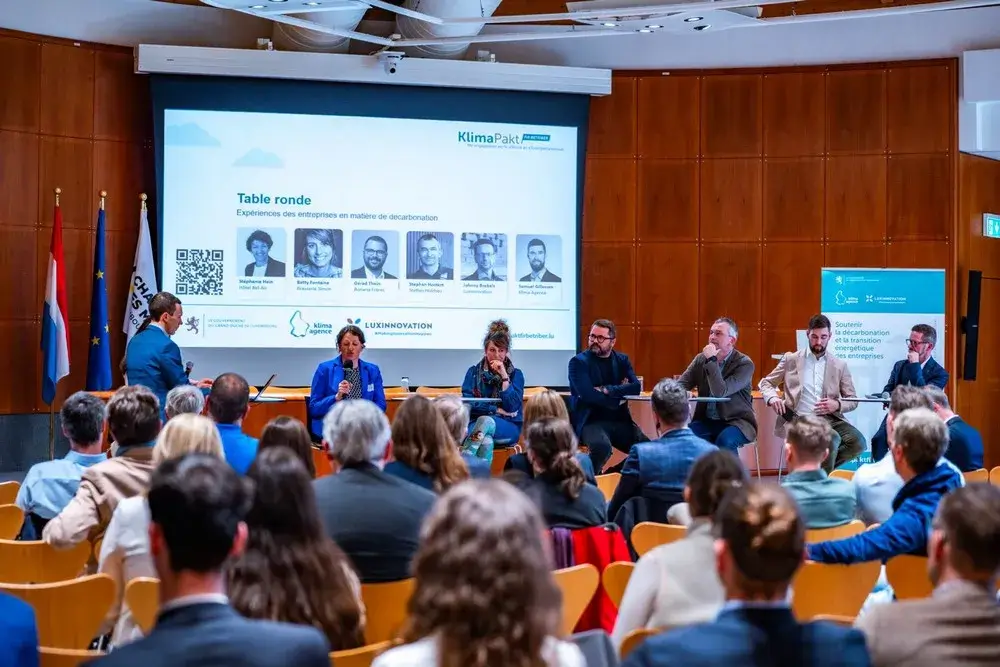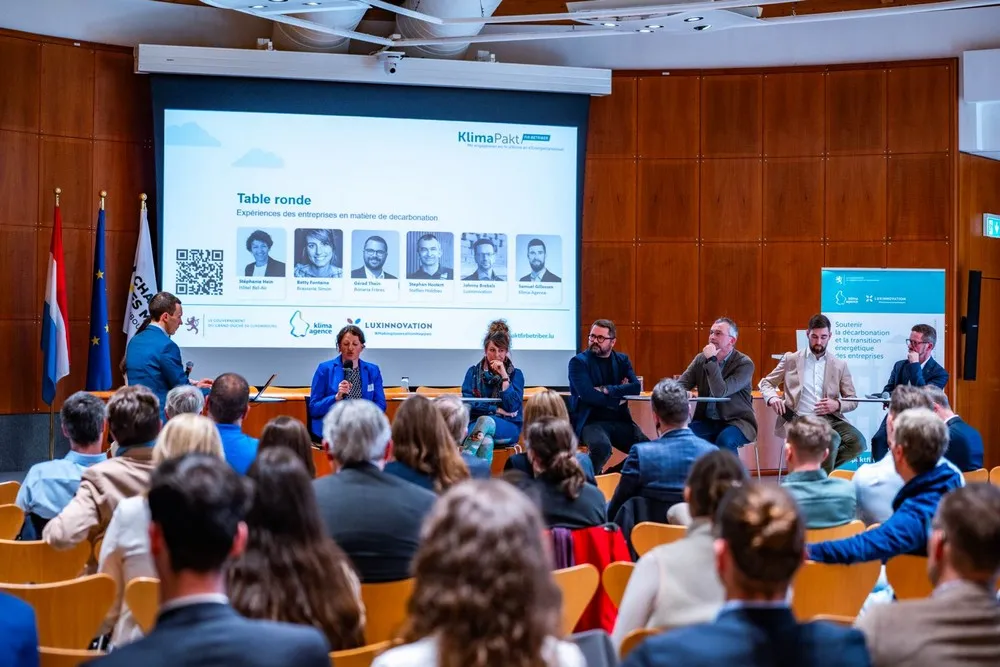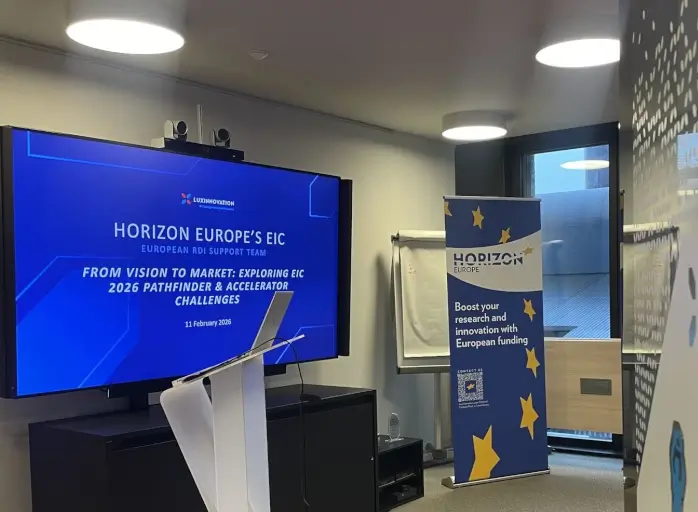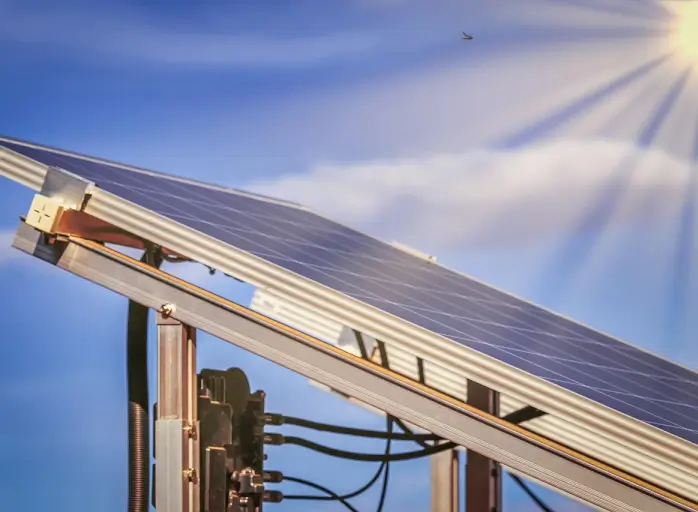

Simplifying decarbonisation and the energy transition
The national initiative Klimapakt fir Betriber, led by Klima-Agence and Luxinnovation, supports companies looking to improve their sustainability.
 Jean-Michel Gaudron
Jean-Michel Gaudron
Since its launch at the end of 2022, the Klimapakt fir Betriber initiative has been helping companies with decarbonisation and the energy transition. Initiated by the Luxembourg government (ministries of the Economy, Energy, and Environment, Climate and Biodiversity), and led by Klima-Agency and Luxinnovation, it provides a structured and coordinated approach that facilitates access to various initiatives, programmes, support and financial aid.
In less than two years, the initiative has significantly grown and evolved to better meet the needs of companies. The programme now offers concrete and accessible tools, such as a catalogue of innovative measures and solutions, as well as awareness-raising and information materials adapted to the realities of companies. All of this is done in coordination with various sectors and market players.
Finding a coherent framework and a common language to accelerate the implementation of transition and decarbonisation projects. Fenn Faber (Klima-Agence)
Installing a new hot water production system or charging infrastructure for electric vehicles are just two examples that could be relevant to companies across all sectors.
"This offer, adapted to the needs of companies, can only succeed if all together - decision-makers, business experts, market players - can find a coherent framework and a common language to accelerate the implementation of transition and decarbonisation projects," said Fenn Faber, director of the Klima-Agence, on the occasion of the Klimapakt fir Betriber Day on 3 April, which brought together around a hundred economic and institutional players around the opportunities offered by the energy transition and decarbonisation for companies.
 Specific tools
Specific tools
The various actors involved in the Klimapakt fir Betriber initiative provide advice (via, for example, the Klimaprogramm Handwierk of the Chamber of Skilled Crafts specifically aimed at craft enterprises) and support for applications for the many existing financial aids: the temporary environmental aid scheme (available until 30 June 2025); the environmental protection aid scheme (Law of 15 December 2017); the SME Package Sustainability and Fit 4 Sustainability programmes; calls for projects.
Specific tools, such as the national solar cadastre, a list of planners for photovoltaic projects, a guide for planning charging infrastructure (in German), and a catalogue of innovative measures and solutions are also available to companies.
In the near future, companies will also be able to monitor energy carriers or implement multi-year monitoring via the digital E-Tool. In addition to logging information, the tool can be used for detailed data analysis and reporting.
Success stories
The Klimapakt fir Betriber Day also provided an opportunity to showcase several real-world examples of companies implementing decarbonisation strategies to reduce their carbon footprint:
- The Bel-Air and Trail-Inn Hotels have followed participated in the Klima-Agency's "Potentialcheck" pilot project to continuously modernise their equipment in order to reduce their energy consumption. "It is also important to constantly raise awareness among staff and customers about good practices," said Stéphanie Hein, manager of these two hotels.
- Brasserie Simon has integrated a photovoltaic system into its production process to heat and then cool its raw materials. "With the explosion in energy costs, being able to meet 40% of our needs via solar energy and benefit from subsidies for this has allowed us to make the installation profitable very quickly," explained Betty Fontaine, the managing partner.
- The construction and civil engineering company Bonaria Frères has carried out a carbon assessment and implemented an action plan to decarbonise its activities. "We are working with the CDEC (Conseil pour le Développement Économique de la Construction) to define the best ways to minimise and optimise employee and material journeys," said Gérard Thein, the associate director.
- The construction company Steffen Holzbau has opted for the electrification of its vehicle fleet and installed charging stations and photovoltaic panels to generate electricity. "Between the state aid and the maintenance costs, which are lower than for combustion cars, the long-term calculation is interesting at our level," said Stephan Hostert, managing director.
Fit 4 Sustainability: the entry point
"Helping companies become more sustainable through innovation is one of our missions. Through initiatives such as the Fit 4 Sustainability programme, we enable companies to assess and reduce their environmental footprint, adopt a more sustainable approach to their activities, improve their energy efficiency and ensure their long-term competitiveness," recalled Johnny Brebels, Senior Business Relationship Manager at Luxinnovation.
Helping companies become more sustainable through innovation is one of our missions. Johnny Brebels (Luxinnovation)
The Fit 4 Sustainability programme is one of the entry points for companies looking to assess and reduce their environmental impact, cut costs, enhance their reputation and attract new customers who value sustainability.
The programme allows companies to engage with an experienced specialist, referenced by Luxinnovation, to help analyse their environmental impact and develop a roadmap for improving sustainability. This assessment phase (which can include a carbon footprint assessment, an energy audit, a water management analysis or a life cycle analysis) is co-financed by the Ministry of the Economy.
Luxinnovation has also published a mapping of sustainability enablers in Luxembourg, which helps companies identify the right innovative products, services, solutions and technologies and initiate contacts with relevant players.







